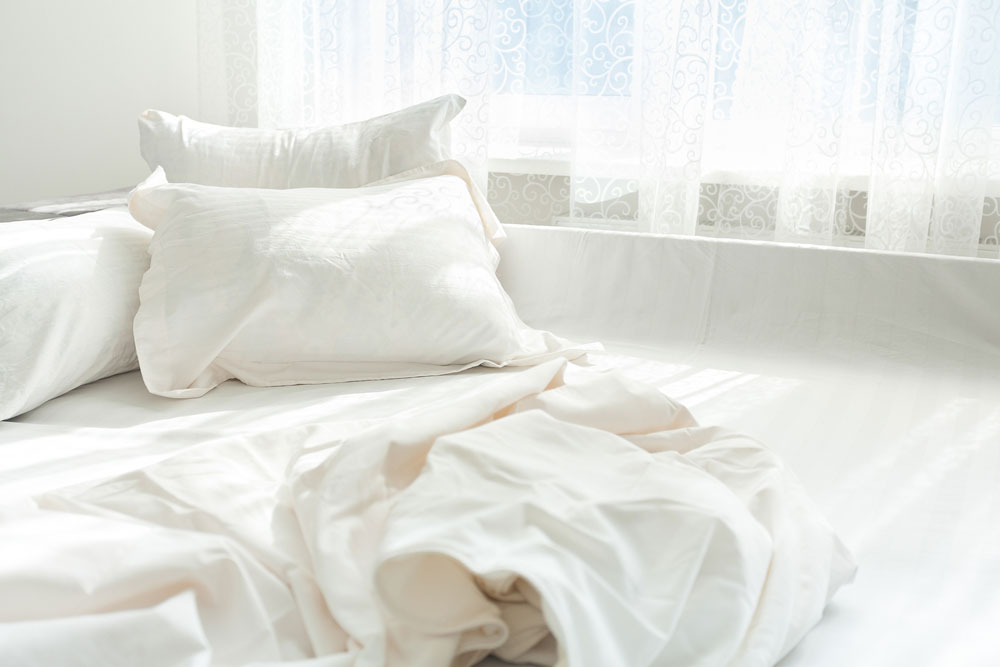Menopause is a time of major hormonal, physical and psychological change for women. While symptoms may vary from woman to woman, it is common to experience sleep problems. Many factors, such as hormonal changes, hot flashes, depression and mood swings, and coincidental social issues, impact sleep quality.
In this article, we’ll explore the relationship between menopause and sleep and what you can do to lead a healthier life through these changes.
How Can Menopause Affect Sleep?
Hormonal Changes
As women transition between perimenopause and menopause, their ovaries gradually decrease production of estrogen and progesterone, a sleeping hormone. The changes in the level of hormones can wreak havoc in their life, sometimes contributing to the inability to fall or stay asleep.
Hot Flashes
You’ve likely heard of hot flashes associated with menopause. This surge of adrenaline produces sweat and a change of temperature that often disrupts sleep and comfort levels.
Depression/Mood Swings
About 20% of women experience depression during menopause. However hormonal changes are not the only cause. Life stressors and a history of menopause are important considerations as well.
Coincidental Social Issues
During this time frame, hormonal changes may not be the only thing you are experiencing. Often, this time in life can present social changes such as retirement, your children moving out of the house, and/or a complex feeling of “midlife crisis” stress as you transition into a new phase in life.
What Medical Treatments are Available?
Two medical treatments are available. Estrogen Replacement Therapy (ERT) or Hormone Replacement Therapy (HRT) have been found to help relieve menopausal symptoms. While the effects vary among women depending on the form taken (pill, patch, gel, cream, or injection), it is important to consider the risks.
For HRT patients, it is recommended that HRT be prescribed at the lowest effective dose and used only for short periods. In the long term, it could put women at risk for cardiovascular disease and dementia.
Alternative approaches for managing menopausal symptoms include nutritional products and medications such as calcium supplements, vitamin D and bisphosphonates, estrogen creams and rings for vaginal dryness, and sleep-promoting drugs for insomnia.
For a natural approach, use soy products (tofu, soybeans, and soymilk). They contain phytoestrogen, a plant-based hormone like estrogen. Soy products may lessen hot flashes but can cause gastrointestinal side effects.
Before deciding what to use, consult your doctor to review your options. The right treatment will depend on your personal and family medical history.
What Can I Do?
If you’re experiencing menopause and insomnia, there’s a few ways to ease your symptoms. Here are 4 sleep tips to living with menopause.
- Eat healthy. Avoid large meals, especially before bedtime. Maintain a regular, normal weight. Some foods that are spicy or acidic may trigger hot flashes. Try foods rich in soy as they might minimize hot flashes.
- Avoid nicotine, caffeine and alcohol, especially before bedtime.
- Dress in lightweight clothes to improve sleep efficiency. Avoid heavy, insulating blankets and consider using a fan or air conditioning to cool the air and increase circulation.
- Reduce stress and worry as much as possible. Try relaxation techniques, massage and exercise. Talk to a behavioral health professional if you are depressed, anxious
Schedule a Consultation
If you are having trouble with menopause and sleep, it is important to seek the right medical help. To get you started, discuss and review your treatment options in order find the perfect option for you. Schedule an appointment with Dr. Shukla today, for treatment options.

